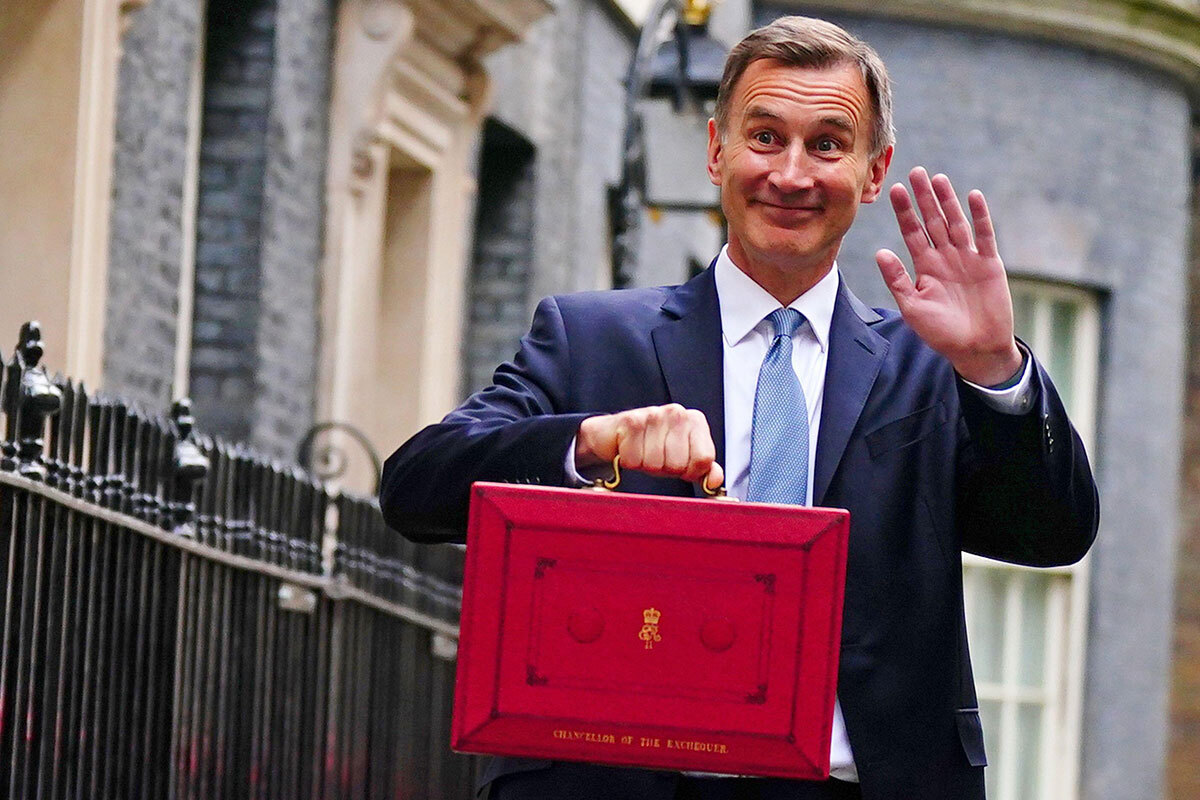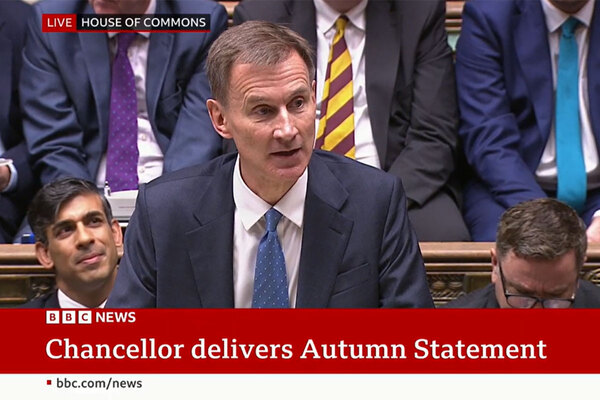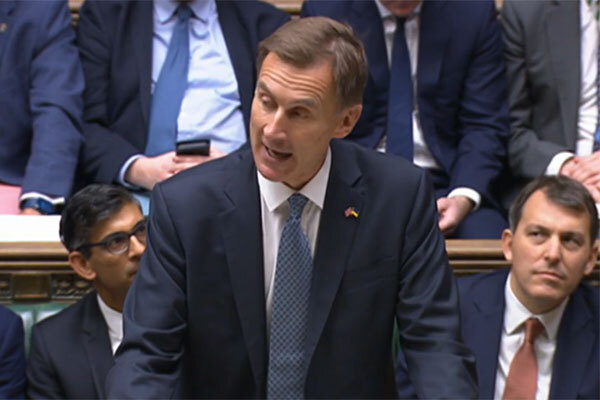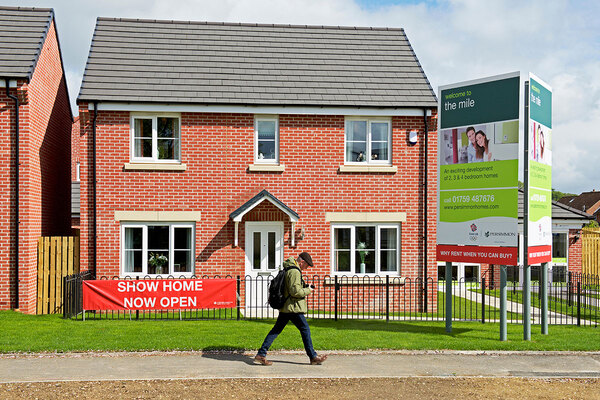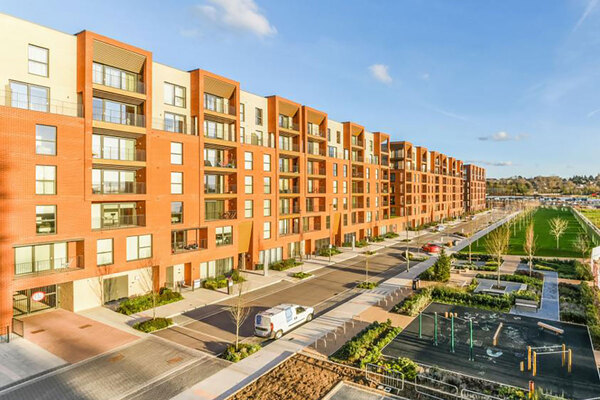Spring Budget 2024: what does the sector want from Jeremy Hunt?
This week will see the last Spring Budget before a general election. But what are the housing sector’s bodies calling for? James Wilmore reports
When Jeremy Hunt steps up to the dispatch box on Wednesday to deliver his crucial Spring Budget, he will have made an array of tough decisions amid the usual cacophony of pleas.
With a general election looming, it is being billed as much a political statement as a financial one. And with a change of government possible in less than a year, the certainty the sector craves could have to wait.
Nevertheless, housing sector bodies have made a raft of demands to the Treasury. Inside Housing rounds up some of the asks.
Social housing rent
The National Housing Federation (NHF), Chartered Institute of Housing (CIH) and the G15 have all called for a long-term, inflation-linked rent settlement and the reintroduction of rent convergence to help with financial planning.
In the case of the G15, it wants to see a 10-year rent settlement. The current five-year settlement is due to end next financial year, but a now former housing minister previously promised it will decide on future policy in the “first half” of 2024.
The policy of rent convergence was introduced in 2002 by the then Labour government, but abandoned by the coalition government in 2015.
Under Labour, a rent formula was established with rents moving towards a formula which took account of property values and local earnings relative to the national picture.
Fiona Fletcher-Smith, chief executive of L&Q and chair of the G15, whose members own or manage 850,000 homes nationwide, said: “Key for us is the uncertainty around rents, and so we are calling for rent convergence to be reinstated with a cast-iron commitment to indexation.
“A reintroduction of rent convergence would also provide fairness by ensuring residents pay comparable rents based on the size of their property and location.”
Development and planning
The G15 has called for the length of the government’s current Affordable Homes Programme (AHP) to be doubled “for greater funding predictability”.
John Bowker, chair of JV North, which represents housing associations and councils across the North West of England, also called for the AHP to be extended, as it runs out in March 2026.
“While two years away, larger development schemes start to become questionable due to the length of time they take to build, coupled with not knowing if funding will be available when they complete,” he said.
“Without certainty, boards will be nervous about approving these schemes and it could cause a slowdown in housebuilding – something the country can ill afford given shortages and record-high homelessness.”
At the same time, the CIH has urged an increase in grant levels to boost the supply of affordable housing. “A major shift of subsidy from private market support would enable funding to be directed where it would meet the greatest housing need.
“Investment in social housing is the most cost-effective way to tackle homelessness and reduce housing benefit, providing a safety net to those who need it.”
Both the CIH and NHF pointed to much-quoted research suggesting 90,000 new social homes a year are needed to meet current demand.
Inside Housing has been calling on politicians from across the political spectrum to pledge to deliver substantial numbers of homes for social rent as part of its Build Social campaign, which launched last year.
For its part, the Northern Housing Consortium (NHC) believes there is a “strong case” that grant rates will need to be revisited in the light of high construction price inflation since the beginning of the current AHP, so they reflect the costs of building to the Future Homes Standard. This should be done following consultation with the sector, the NHC said.
On planning, the NHF urged the government to ensure that local planning authorities have the “necessary resources to enable the swift and timely granting of permission”.
The NHF said: “Our members consistently report that the lack of capacity within local planning authorities is a significant barrier to the development of much-needed new social homes.”
Homelessness
The NHF has called for a boost to and ringfencing of funding for housing-related support to “ensure spending at least matches the £1.6bn per year allocated to local authorities in England in 2010”. It also wants to see “long-term, ringfenced and increased funding for supported housing and support services”.
The government should also reinstate the £300m Housing Transformation Fund, which was cut after a review last year.
The NHF and CIH are both asking the government to invest in homelessness prevention advice and support services.
“This investment would mean that many people do not lose their homes in the first place, and when people do need temporary accommodation in emergency situations, they are able to move on in a timely manner to suitable affordable accommodation,” the CIH said.
The NHF believes this investment should be made alongside financial support for the hardest hit families, to prevent rough sleeping and the use of temporary accommodation.
National charity Crisis has also made a series of pleas, including wanting to see the subsidy cap on temporary accommodation lifted.
Welfare
The CIH said it “very much welcomed” the government’s commitment in last year’s Autumn Statement
to uprate Local Housing Allowance (LHA) and working age benefits from April – but there is “still a significant affordability gap for many to manage”.
As a result, the group wants to see the government commit to ensuring LHA rates “reflect the true cost of renting”.
The CIH added: “Restoring LHA to the lowest 30 per cent of housing is the minimum required, but waiting until April to unfreeze it does not help those struggling with their rent over the winter months, and refreezing after a year means renters will start to face the same pressures from next April.”
Charity Crisis has reminded Mr Hunt to build on his previous announcement by maintaining the investment “beyond the next financial year”.
It also wants to see the shared accommodation rate of LHA removed and the benefit cap removed.
Both the CIH and NHF want to see the two-child limit removed. The cap, introduced in 2017, restricts child tax credit and Universal Credit to the first two children in most households. The NHF has called for the removal of the spare room subsidy.
At the same time, there should be a review of the five-week wait for Universal Credit and deductions system. This should be done alongside uplifted funding for Discretionary Housing Payments to be reinstated, so tenants with a rent shortfall can be supported to avoid rent arrears. Plus, there should be extra support available to all low-income households through the benefits system.
Energy bills
The issue of fuel poverty continues to affect the social housing sector. The NHF and CIH are both calling for the government to confirm plans to consult on implementing a social tariff in the energy market and “signalling a firm intention to fund this for a multi-year period”.
In addition, the CIH would like to see the ‘Help to Repay’ proposals from the Money Advice Trust introduced to “help reduce household consumer debt through a payment matching programme”.
The NHF also wants to see the Energy Bill Support Scheme – Alternative Funding reopened to “ensure all households who missed out receive their payment”.
Decarbonisation
The need for social landlords to make their stock more energy efficient continues to hang heavy over the sector. So far, the government has released around £2.2bn from its promised £3.8bn Social Housing Decarbonisation Fund (SHDF). The NHF has called on the government to release the remainder of the fund “in full”. This has been echoed by the G15.
Similarly, the NHC has said the government should make it clear when future SHDF funds are to be made available, so landlords can plan their investments.
The NHF has also called for the chancellor to extend the temporary zero-rate VAT relief applied to the installation of energy-saving materials to 2030 and include double and triple-glazed windows and insulated entrance doors in its scope. This would deliver around £3bn in cost savings across the whole sector.
The NHC added: “In the longer term, government should make a multi-year funding commitment for domestic retrofit, so supply chains can scale up effectively. We believe that nationally, across all housing tenures, an investment of £6bn per year would be of the minimum scale of investment required to achieve this.
Decent Homes Standard
Both the G15 and NHC have called on the government to push ahead with developing a new Decent Homes Standard (DHS) in partnership with the sector.
However, it said that any new requirements should be “twinned with proportionate levels of financial assistance for landlords”.
The group calculates that the total cost of making all homes in the North compliant with the existing DHS to be £9.2bn, which includes homes in the private rented sector.
Building safety
The government is being asked by the NHF to implement the End Our Cladding Scandal campaign call for housing associations to have the same access to the Building Safety Fund and Cladding Safety Scheme as private building owners – a call echoed by the G15.
The NHF also wants the government to get contractors, as well as developers, to help pay for defective buildings. “Currently, housing associations have to pick up all or part of the bill for remedial works where contractors are not facing their responsibilities, or where there no longer is a contractor or developer to take responsibility for a building,” the body said.
VAT relief on repairs
The G15 is calling for VAT relief on repairs by social landlords. According to the group, its members last year invested £1.5bn into repairs and maintenance and will be spending at least £4bn to deal with the building safety crisis and at least £11bn to meet net zero by 2050.
“This is putting enormous pressure on our capacity and so we are calling for VAT to be removed from housing association activity,” said Ms Fletcher-Smith.
“The irrecoverable VAT for just one G15 member is £30m per year – money that we could be investing in homes."
Supported housing
The CIH wants to see the funding commitments in the government’s Adult Social Care Reform White Paper introduced.
The group also wants an extension to all funding to support “effective and speedier transfer of care from hospital to housing-based solutions” and has urged ministers to “provide a national, ringfenced funding stream for housing-related support to address the sustainability of existing and new supported housing schemes”.
Sign up for our daily newsletter
Already have an account? Click here to manage your newsletters
